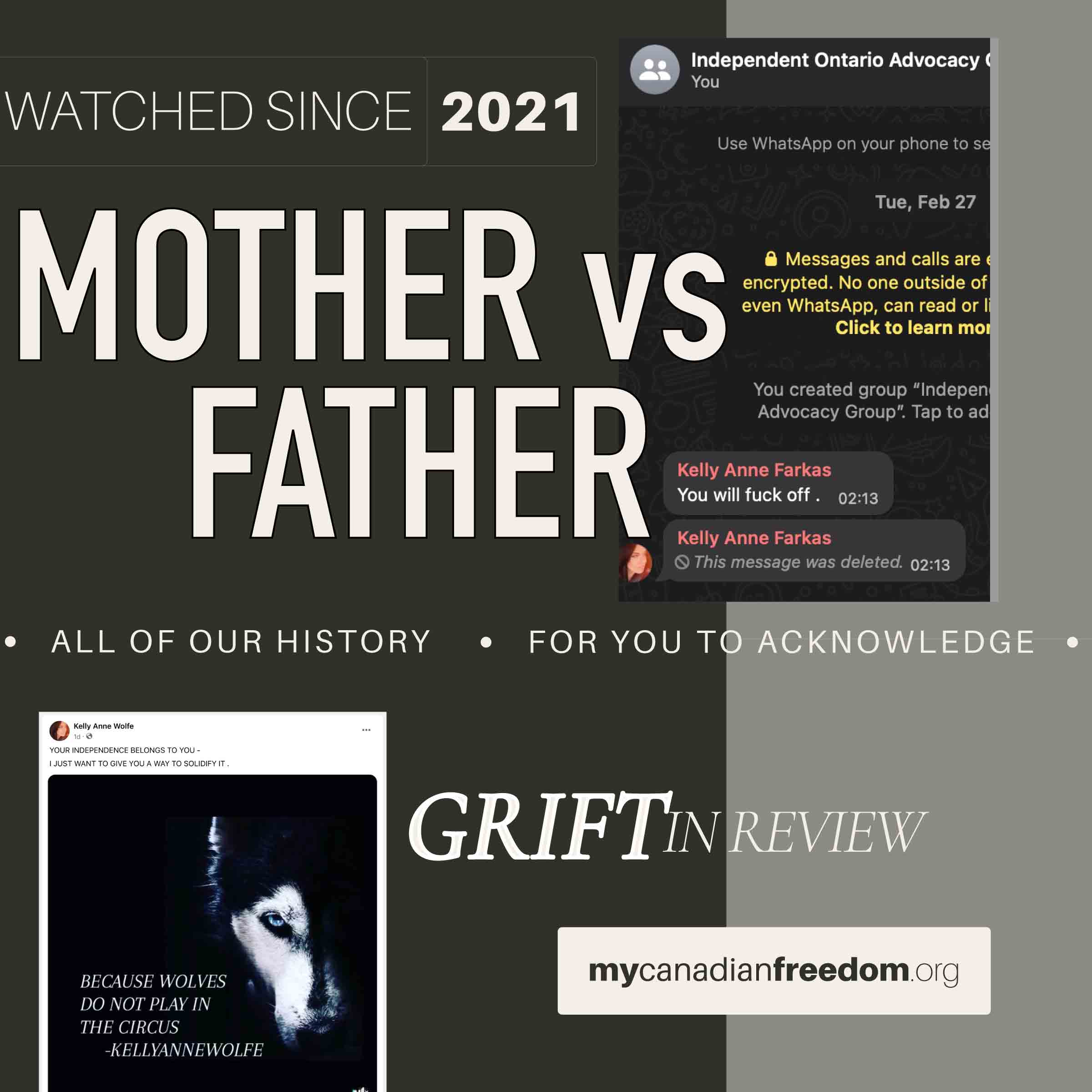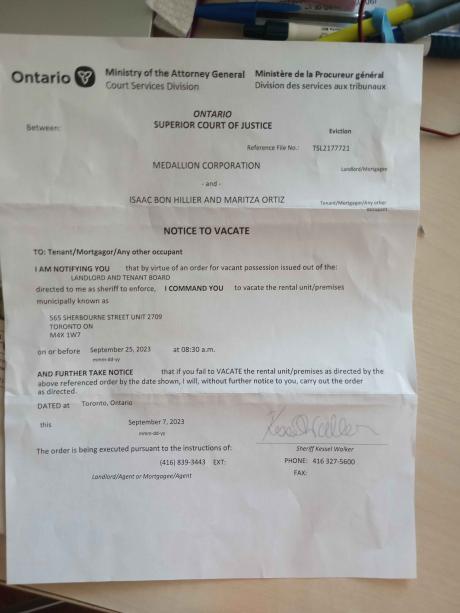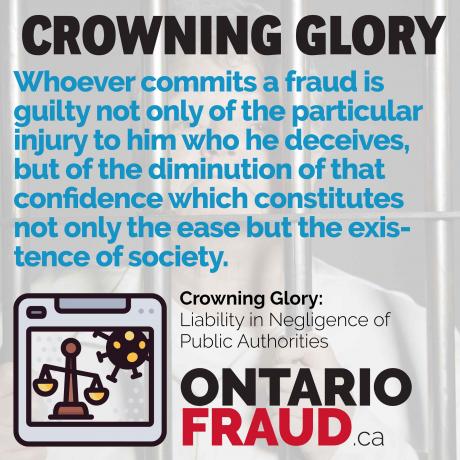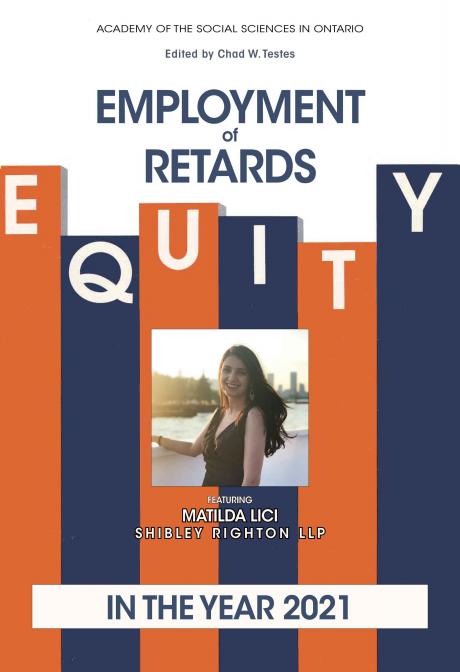The decision of the Federal Court of Appeal in Paradis Honey Ltd. v. Canada, 2015 FCA 89 is quite remarkable. A majority of the Court developed a new test for public authority liability in tort, casting off the previous unwieldy private-law framework in favour of an approach that relies exclusively on public law concepts.
The plaintiffs are beekeepers who allege lost profits due to a blanket ban on certain types of imports. Those of us who struggled through the last Canadian winter need no reminding that the environment is very harsh up here. It is particularly cruel for bees and so beekeepers need to regularly repopulate their colonies. There are two means of doing so (at para. 4): importing a “queen” (a container the size of a matchbox) or a “package” (a container the size of a cereal box). But since 2007, there has been a blanket ban on the importation of packages, with devastating effects on the plaintiffs — though not necessarily other members of the industry: see paras. 64, 85.
There is no statutory basis for this blanket ban. Indeed, statute provides for case-by-case adjudication of applications for permits (at para. 84). Obviously, the beekeepers could have pursued judicial review remedies. But they chose instead to launch a class action based on negligence.
Stratas J.A. allowed the appeal of the Federal Court’s decision to strike the statement of claim. More interestingly, beginning at para. 119, he laid out an alternative framework for deciding public authority claims in tort, one distinct from the current, one-size-fits-all approach:
- The difference between private parties and public authorities matters not. For reasons never explained, Canadian courts have followed the same analytical framework for each: we examine the duty of care, standard of care, remoteness, proximity, foreseeability, causation and damages. To make this analytical framework suitable for determining the liability of public authorities, courts have tried gamely to adapt it. And then, dissatisfied with the adaptations, they have adapted the adaptations, and then have adapted them even more, to no good end (at paras. 120-121)…
- At the root of the existing approach is something that makes no sense. In cases involving public authorities, we have been using an analytical framework built for private parties, not public authorities. We have been using private law tools to solve public law problems. So to speak, we have been using a screwdriver to turn a bolt (at para. 127).
Stratas J.A. noted that those exercising public functions are tasked with fulfilling duties that are not imposed on private parties, in the exercise of which their decisions will inevitably affect large swathes of the population (at para. 128). Accordingly, he would prefer a different approach — one based on public law principles applicable to any function classified as public in nature (at para. 129):
- Broadly speaking, we grant relief when a public authority acts unacceptably or indefensibly in the administrative law sense and when, as a matter of discretion, a remedy should be granted. These two components – unacceptability or indefensibility in the administrative law sense and the exercise of remedial discretion – supply a useful framework for analyzing when monetary relief may be had in an action in public law against a public authority (at para. 132).
The idea of a range of reasonable outcomes which expands or contracts based on context will be familiar to regular readers (see section IV.D of this article), as is the idea of remedial discretion based on public law values (see here). These ideas have been well developed in Canadian public law of late — not least through Stratas J.A.’s own efforts.
Some readers may find this approach a radical departure. Stratas J.A. is at pains to point out that it has support in the jurisprudence and, moreover, that it will not shake settled expectations. For instance, monetary relief will not be automatic even where a decision has been discarded as falling outside the range of acceptability and defensibility:
- The compensatory objective of monetary relief must be kept front of mind. So, in some cases, the quashing of a decision or the enjoining or prohibition of conduct will suffice and monetary relief will neither be necessary nor appropriate. In other cases, quashing, prohibiting or enjoining can prevent future harm and go some way to redress past harm, reducing or eliminating the need for monetary relief. In still others…only monetary relief can accomplish the compensatory objective. As well, the quality of the public authority’s conduct must be considered. This is because orders for monetary relief are mandatory orders against public authorities requiring them to compensate plaintiffs. And in public law, mandatory orders can be made against public authorities only to fulfil a clear duty, redress significant maladministration, or vindicate public law values (at paras. 143-144).
In this particular case, the evidence might ultimately reveal that the refusal of permits was always reasonable, eliminating any claim for monetary relief, or that the beekeepers could have mitigated their losses by bringing a judicial review application in 2007 (at para. 149).
Stratas J.A. was unimpressed by some of the policy considerations offered by the first-instance judge to justify striking the statement of claim. Stratas J.A.’s remarks dismissing the possibility of indeterminate liability are particularly noteworthy, for they indicate how governments need not necessarily fear a new administrative-law regime of public authority liability:
- In the assessment of damages at trial, the judge will consider what would have happened had the Minister acted properly, i.e., what would have happened in a “but for” world where the blanket guideline did not exist. In that “but for” world, the beekeepers would have had to apply for permits under section 160 of the Health of Animals Regulations, above. If permits would not have been available under that section anyway – for example, because at all material times there was a risk of disease and harm arising from importation of bees from the United States – the beekeepers will not be entitled to damages. This shows that the important purpose of protecting the public, relied upon by the Federal Court and my colleague as a policy bar, can still have an appropriate voice in the assessment of damages, perhaps even reducing them to nil (at para. 101).
Stratas J.A. also dismissed the argument that there was a “policy bar” to the action. There is a suggestion in R. v. Imperial Tobacco Canada Ltd., [2011] 3 S.C.R. 45 that such a bar exists, but Stratas J.A. closely parsed that decision to conclude: “Imperial Tobacco does not stand for any clear proposition that dooms the beekeepers’ claim to failure. If anything, Imperial Tobacco leaves us more uncertain than ever as to when the policy bar will apply” (at para. 110).
Pelletier J.A.’s dissenting reasons are also of note. He saw the availability of judicial review remedies as excluding the possibility of recovery in tort:
- The source of the difficulty in dealing with this claim is that while it is framed as an action in negligence, all of the particulars of negligence are acts for which a remedy is available in administrative law. Taking the pleadings at face value, the Beekeepers have been the victims of abusive administrative action. Had they sought judicial review of those abusive actions in a timely fashion, they could have limited, if not prevented, the losses of which they now seek to recover in their negligence action. This is not a case in which the Beekeepers were victims of misconduct for which there is or was no other recourse. There was a readily available remedy which they chose not to exercise. In my view, it is not just and reasonable to impose a prima facie duty of care in negligence when the injury complained of could have been limited or prevented entirely by the exercise of a readily available remedy (at para. 68, emphasis added).
This seems wrong to me, because the availability of judicial review is not a bar to recovery in tort. On this logic, Frank Roncarelli would also have been unable to collect damages.
It remains to be seen whether the Supreme Court of Canada will, if asked, grant leave. The section on reshaping public authority liability is technically obiter, but it represents a strong and elegant challenge to a prevailing orthodoxy that provokes regular grumbles. I should add that this decision is further evidence of an “underground market in legal ideas“: Stratas J.A. draws on ideas he developed in his keynote address to the Compensation and the Common Law conference held at the University of Montreal last year.
- UPDATE: A collection of the papers from that conference will shortly be published as a special issue of the Supreme Court Law Review, including contributions from me and Alexander Pless on the thorny question of public authority liability.







Comments